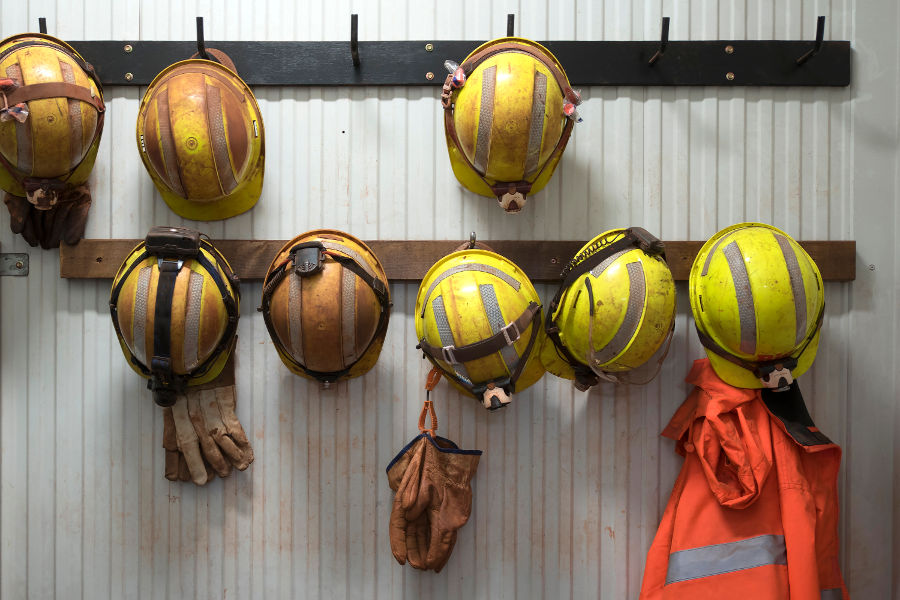There are currently some delays in implementing Local Law 196, the new construction worker training requirement. If you’re currently undergoing construction or plan to in the future, this will impact your buildings.
Patrick A. Wehle, Assistant Commissioner of External Affairs for the DOB, gave a presentation on Local Law 196 at this year’s RealFocus. Here’s a roundup of the most important points from his session:
- What is Local Law 196?
- What job sites and workers does the law apply to?
- What are permit holders responsible for?
- What are the three phases of safety requirements?
- What’s the required training curriculum?
- Is the Phase 2 requirement likely to be pushed back to June 2019 from December?
- How will this be enforced?
What is Local Law 196?
Local Law 196 of 2017 requires that certain workers at certain types of job sites receive 40 hours of safety training. The rule also requires that supervisors at those same sites receive 62 hours of safety training.
Here’s a presentation shared by the DOB outlining critical components of the law – we’ll break them down for you below. You can also read the full text of the law here.
What job sites and workers does the law apply to?
Workers at sites that require Construction Superintendents, Site Safety Coordinators, or Site Safety Managers are required to follow this new rule:
- Construction Superintendents are required at new buildings and buildings under demolition nine stories and below
- Site Safety Coordinators are required on new buildings 10 to 14 stories under construction or demolition, while Site Safety Managers are required on new construction or demolition sites 15 stories and above or 100,000 sq. ft. or greater. Read more about these roles here.
All workers AND supervisors at these sites must be trained. This includes the above roles and any other “competent persons.”
Here’s who doesn’t need training:
- Delivery persons, flag persons, professional engineers, registered architects, department-licensees, and department registrants (excluding safety professionals)
- Workers at sites that only involve minor alterations, or the construction of a new 1-, 2-, or 3-family home
That said, per the DOB, “If you fall into one of these categories but serve as a Site Safety Manager, Site Safety Coordinator, Concrete Safety Manager, Construction Superintendent or competent person, you must receive training.”
Additionally, while licensees themselves don’t require this training, employees working under “their direct and continued supervision” need to be trained.
What are permit holders responsible for?
- Ensuring each worker or supervisor employed by or on behalf of the holder has the required site safety training
- Certifying to the DOB that individuals performing work under the permit have had required training per the law
- Maintaining a daily log that identifies trained workers and supervisors and their applicable training, and providing the Daily Log to the DOB when requested
What are the three phases of safety requirements?
- March 2018 (already in place): All workers must have received a minimum of 10 hours of training
- December 2018 or June 2019 (confirmed June 2019, see below): Workers must have at least a Limited Site Safety Training Card, which includes a minimum of 30 hours of training
- May 2019 or September 2020 (final phase): Workers must have a Site Safety Training Card, which means they have been fully trained
For Phases 2 and 3, if “there is insufficient capacity to provide the training,” due dates will be pushed back to June 2019 and/or September 2020 (from December 2018 and/or May 2019). We’ll dive into this update a bit more below.
What’s the required training curriculum?
This Service Notice from the DOB outlines what kinds of training will fulfill this requirement for each stage.
A follow-up Notice in July released additional Course Provider Requirements.
Is the Phase 2 requirement likely to be pushed back to June 2019 from December 2018?
Per the DOB’s official announcement, yes.
The deadline for Phase 2 (30 required hours and 62 for supervisors) has been officially extended to June 2019. Now is the perfect time to confer with your contractors, and make sure their teams are on target to hit this goal.
How will this be enforced?
Per the Department of Buildings:
- If the DOB discovers that workers are untrained, violations with civil penalties as high as $5,000 per untrained worker will be issued to the owner of the site, the permit holder, and the employer of the untrained worker. Penalties can be mitigated if an employer sponsors training for the worker in question
- If a permit holder fails to maintain a daily log, the DOB will issue a violation with a civil penalty of $2,500
- The DOB will conduct surprise inspections at sites where untrained workers have been discovered




